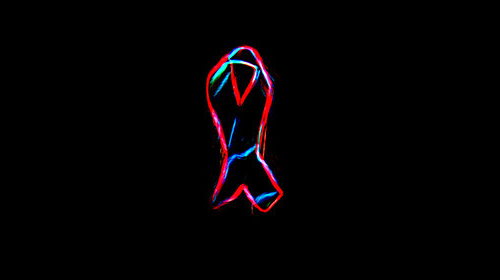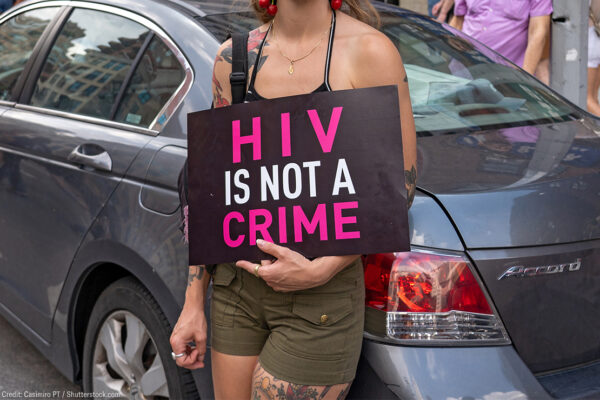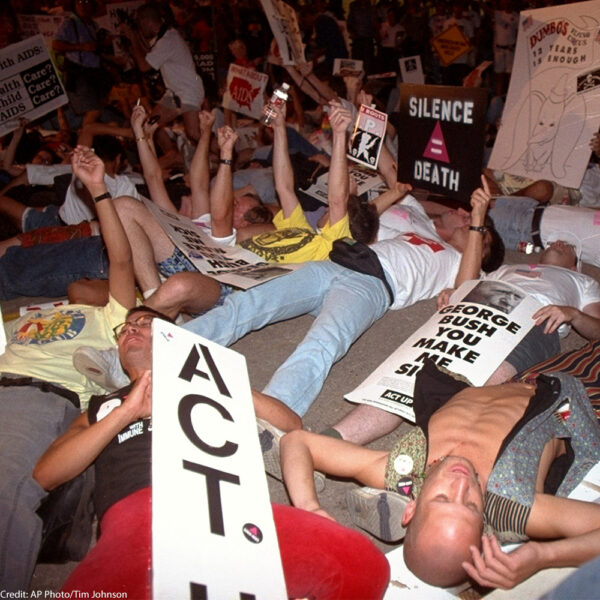
...except in at least 32 states, it can be.
When we were first confronted with HIV in the United States in the 1980’s, contracting the virus was largely understood to be a death sentence. Thirty years later, with treatment and access to medical care, HIV is a treatable, even if incurable, condition.
Yet even as science and treatment has advanced, we are arresting and locking people with HIV up for engaging in consensual sex, for bleeding, for spitting, for existing.
As the Center for HIV Law and Policy reports, “Thirty-two states and two U.S. territories have HIV-specific criminal statutes and thirty-six states have reported proceedings in which HIV-positive people have been arrested and/or prosecuted for consensual sex, biting, and spitting. At least 180 such prosecutions occurred from 2008 to 2013 alone.”
While framed as public health measures intended to prevent the spread of HIV, in reality these laws stigmatize people with HIV and misrepresent the causes of HIV transmission, the treatment options, and outcomes for people living with HIV and disproportionately impact people of color.
In reality, as the Department of Justice notes, “many of these state laws criminalize behaviors that the CDC regards as posing either no or negligible risk for HIV transmission even in the absence of risk reduction measures.”
But despite the position of the federal government and major medical associations, state prosecutions for exposure to HIV continue.
Last week, a Missouri jury sentenced Michael Johnson, a young, black gay man living with HIV, to over three decades in prison for allegedly exposing consensual sexual partners to HIV .
A star wrestler at Lindenwood University in St. Charles, Missouri, Johnson was revered for his strength, athleticism, and sexual desirability. That same body that brought wrestling wins to the university and which attracted admirers on social media quickly became the subject of racialized tropes about the danger of black male sexuality when he was arrested and his HIV status widely publicized.
For example, Buzzfeed reported that “Overtly racist blogs, like Chimpmania.com, labeled him an ‘HIV Positive Buck.’” In imagery and discourse that has been used to restrain and criminalize black sexuality since chattel slavery, reports cast him as a strong, predatory weapon that preyed on smaller white victims.
As with many criminal laws, laws making exposure to HIV a crime disproportionately affect gay and trans people of color whose sexuality is already perceived as dangerous and deviant. In response to the racialized targeting of Johnson in the public discourse, fellow black gay men wrote him a public letter of support:
“For you, your accusers saw your Black and masculine body as a site of ultimate sexual pleasure, until they had to deal with you as a whole person. At that moment you became a problem and were disposable to them.”
Johnson went from revered to reviled and spent 18 months in jail awaiting trial. For the past three months, he has had no contact with other prisoners, instead spending 23 hours a day in lockdown segregation. He then was tried and convicted before an almost all-white jury, which included jurors who believed that “homosexuality is a sin.”
Though prosecutors attempted to analogize non-disclosure of HIV to driving under the influence of alcohol, the charge and punishment levied upon Johnson are in no way comparable to how drunk driving is treated under Missouri criminal law. While drunk driving is a misdemeanor offense with a maximum of six months in jail for first time offenders, Johnson was charged and convicted of six felonies and will face between 30 and 60.5 years in prison.
A combination of racism, homophobia, and a gross misunderstanding (or perhaps deliberate rejection) of science led to the inhumane conviction and sentence of Johnson under the HIV criminalization scheme, which is, according to the open letter, “yet another tool used to police and incarcerate bodies that are too often poor, Black or brown, or queer-identified.”
For those of us in the LGBT community, the rejection and outright disposal of people living with HIV is our history and our fight. There is still work to be done to fight the stigma of living with HIV. Almost 30 -years since the founding of ACT UP, the calls to “Stand up. Fight Back. Fight AIDS.” must continue. And those calls mean fighting the criminalization of HIV.
And to Michael Johnson, we will stand with you and support you in this fight. Your body was marked for disposal because of your blackness, your gayness, and your HIV status. We will not tolerate such injustice.



